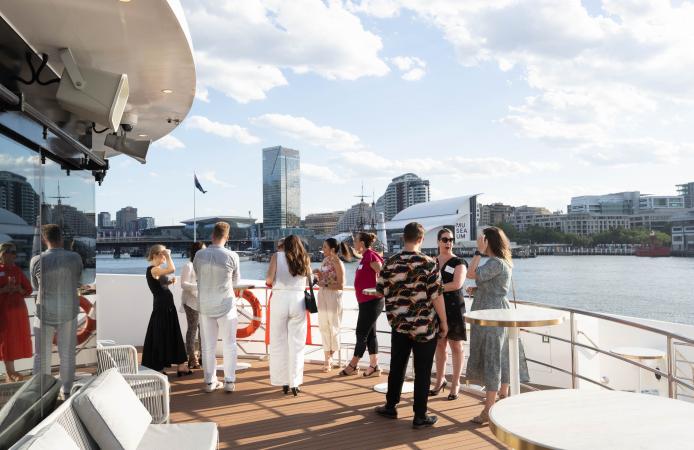
MCEC Event Trends 2022: Virtual and Hybrid
With the onset of COVID forcing lockdowns, border closures and travel restrictions, online events offered a ready – and relatively workable - solution to planning events when in-person meetings, conferences and conventions were either impractical, or simply not allowed. But having started out as a second-best solution for when in-person wasn’t an option, digital and online events are now enjoying an astronomical surge in popularity, with many planners now choosing to go virtual and hybrid in favour of fully on-site events.
Now restrictions have eased significantly, borders have reopened, and organisations and individuals are champing at the bit to get back to business ‘as usual’, it’s reasonable to anticipate a decline in interest for virtual and hybrid events. Instead, demand for online events continues to grow, and at breakneck speed. Recent research conducted by EventMB (now part of the Skift family) revealed 71% of event planners said they will remain committed to a virtual strategy even as in-person events return, while 67% of event planners said that hybrid events are the future. This is further supported by a Bizzabo survey indicating that 93% of event planners ‘plan to invest in virtual events in the coming future’ and 97% of event professionals expect to see an increase of hybrid events moving forward.
According to renowned virtual events specialist and founder of the Hybrid Event Centre, Paul Cook: “Virtual events will continue to be in demand, and the best ones will be those that increase (an organisation’s) production values. In other words, the home-made look will quickly become a thing of the past, if the organisation is to keep its brand reputation in good shape.”
Of course, to ensure success and longevity in this brave new world of digital events, there is work to be done. Organisers will need to find ways to keep online audiences engaged by making their events bigger and bolder than previous iterations. Happily, some solid and sustained investment in the digital products and services available to the industry has resulted in far more engaging, intuitive and user-friendly digital event pathways being made readily accessible to planners and venues. Gone are the days of the dreaded ‘talking head’; today’s digital event platforms are capable of delivering immersive, highly interactive experiences for online participants that can make them feel like they’re there IRL, with newer platforms offering exclusive and on-demand content, curated networking opportunities and additional features that deliver value to organisers, sponsors and attendees far beyond more traditional in-person events.
Leading venues are now also introducing dedicated digital event managers to help plan and deliver online events and ensure customers are getting the best from their digital event experience, so it’s becoming far easier – and more economical – to deliver world-class virtual and hybrid events.
There’s also a growing appetite for asynchronous events, with the industry recognising that it’s no longer essential that events, or event segments, be held at the same time, in the same place. Although still in their infancy, SVP Marketing and Communications at Hubilo Cathy Song Novelli believes that asynchronous events are the future. “We need to think about events less as ‘one-and-done’ and more as an evergreen and evolving mission,” said Song Novelli.
Globally, the pandemic has instilled a culture of flexible working and a deeper understanding of how and when we want to ‘switch on’. Given this, the demand for digital, always-on content and smaller bite-sized experiences is ever-increasing. Virtual, hybrid and in- person events can all benefit from the adoption of the asynchronous event format, which offers attendees – regardless of their time zone - the power to access or download on-demand content at a time that suits them. Better event technology will mean attendees are able to experience events at their own pace, minimising the need for organisers to capture their attention for the entire event, and allowing attendees to cherry pick the content that is most interesting or relevant to them personally. Pre-recorded content ensures sessions can be viewed multiple times, maximising the reach for organisers, and boosts the potential for data collection, while real-time feedback and analytics can help planners to optimise their content. An asynchronous model also helps event planners manage session scheduling, eliminating the all-too-prevalent issue of speaker clashes.
In summary, the relatively untapped potential of virtual and hybrid events to deliver laser-focused engagement and personalised content to audiences wherever – and whenever – they are means the online events revolution may just be getting started. And all it took was a global pandemic.
Discover a world of immersive, interactive online events at Melbourne’s Home of the Unconventional, MCEC.


